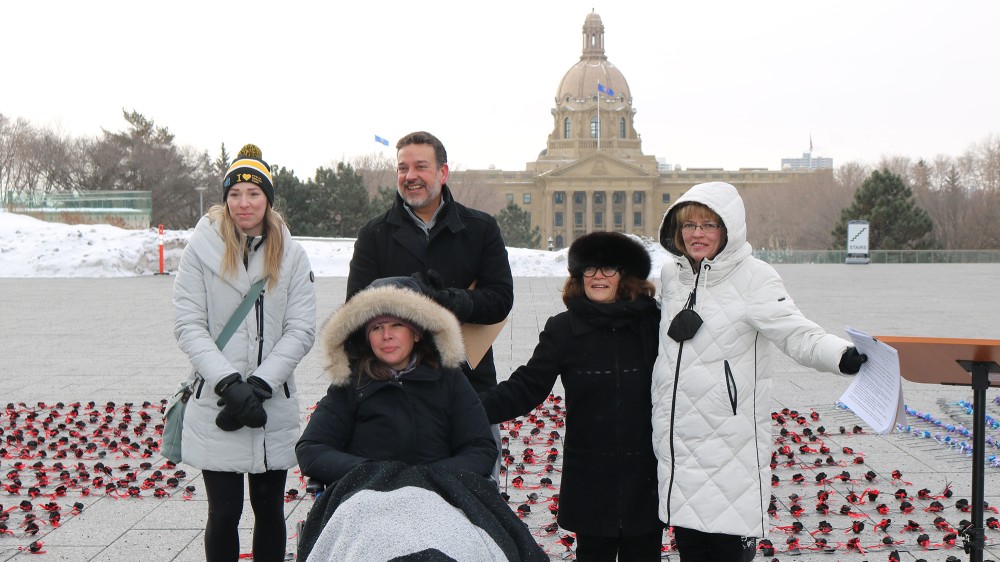Albertans with Long COVID deserve support, pandemic memorial in Edmonton told
COVID-19 Memorial

Albertans with Long COVID deserve supports to keep their bills paid and help them recover from the disease, UNA President Heather Smith told a memorial today for the more than 5,000 Albertans who have died from the disease since the declaration of the pandemic three years ago.
Standing before a display of 5,000 paper flowers symbolizing each of the lives lost in Alberta to COVID-19, Smith reminded her listeners that it’s also important to remember those who have experienced Long COVID. “It’s crucial that these Albertans aren’t left behind by their provincial government and their health care system,” she said.
“About 15 per cent of adults who have contracted COVID-19 experience Long-COVID,” she said. “In Alberta that translates to an estimate of 94,000 individuals, approximately 2 per cent of our population, equivalent to a city the size of Lethbridge or Red Deer.”
Women are almost twice as likely to suffer from Long COVID, Smith noted, and health care workers, most of whom are women, are also more likely to experience the condition.
Gil McGowan, president of the Alberta Federation of Labour, called it fitting that working Albertans organized the memorial. “Many workers were exposed to COVID-19 in the workplace through insufficient protective equipment, bad ventilation, or simply because it was their job to care for the sick.”
Calling for a resumption of COVID testing and 10 mandatory sick days for all Alberta workers, McGowan said that “the same way our leaders failed us during the first three years of the pandemic, they are now failing us in the face of Long COVID.”
“We can’t let the failures of the past three years become a prelude for failures for the next three years,” he stated.
Respiratory therapist Chandra Arsenault, a member of the Health Sciences Association of Alberta Board, noted that “when the pandemic finally goes away, we are still going to be dealing with the effects of thousands of Albertans who have Long COVID.
“It’s the responsibility of the government to implement a strategy to help those affected and prevent more from suffering from this disease,” she said.
Seniors were particularly hard-hit by the pandemic, said Judy Lederer of the Public Interest Alberta seniors’ task force. “All seniors should be able to count on our health and continuing-care systems to receive the level of care we need, regardless of our ability to pay,” she said. “Federal funding for health care and long-term care must be contingent on the provinces’ compliance with standards.”
Laura Collison, one of the 1.4 million Canadians with Long COVID, said she was infected with COVID-19 in January 2022 during the Omicron wave. “We will never know how many people got sick at the same time because the UCP cancelled PCR testing right as it hit. This ended up delaying access to care for me and many others.”
“I have always been a strong advocate for public health care and nothing has strengthened my resolve like being sick,” she said. “The testing and treatment I have received over the past year would have cost me hundreds of thousands of dollars. If I had to pay for that, I likely would have lost my home.”
“Taking COVID seriously feels as if it has become a radical act and it should not be this way,” Collison said. “We are living through a mass disabling event and it is not too late for us to recognize it and start working to reduce the risk and address the harm.”
